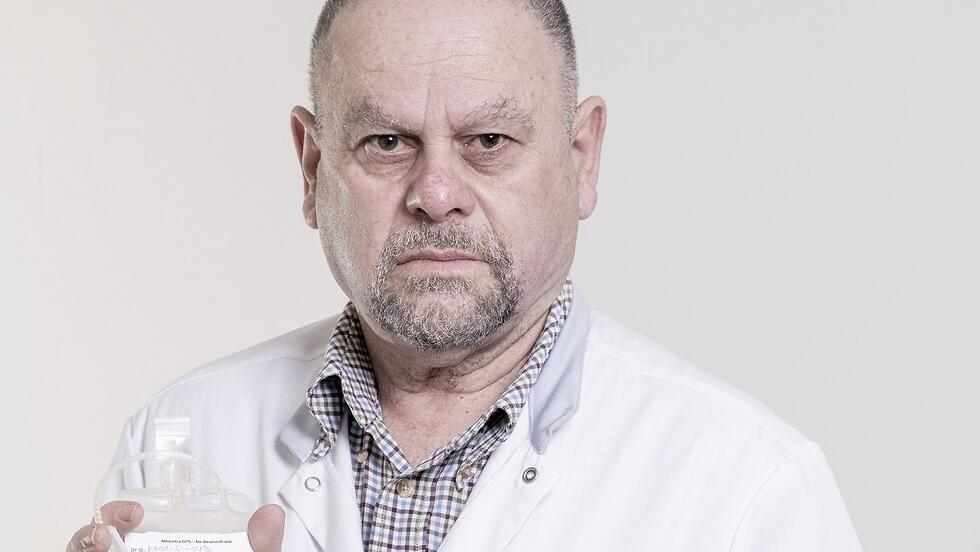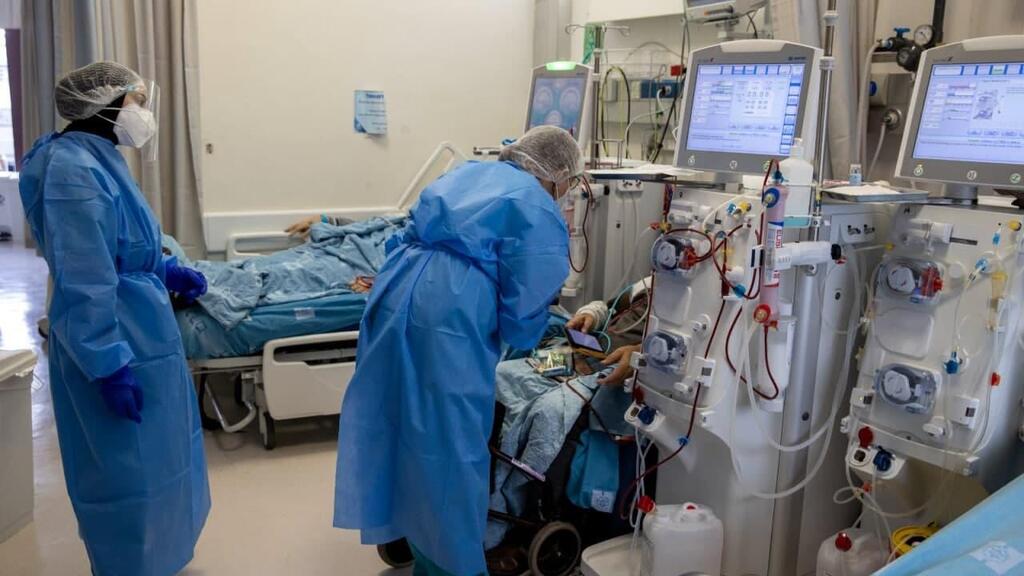Getting your Trinity Audio player ready...
A senior professional at one of Israel's biggest hospitals said Sunday there appears to be no end to pandemic in sight since a new coronavirus variant can emerge at any moment.
Prof. Dror Mevorach, who heads a COVID ward at the Hadassah Medical Center in Jerusalem, also told Ynet that hospitals have been neglected for the past decade, adding to the strain of COVID ill.
4 View gallery


Coronavirus wards around the country
(Photo: Hadassah Medical Center, Yariv Katz, Yoav Davidovich )
"We have 146 patients in seven COVID wards and two intensive care units, this is more than we've ever had before," he said.
The professor claimed the Health Ministry neglected the hospitals and failed to prepare a long-term response to the pandemic.
"They had two years to try and fix things," he said, "but very little was done for the internal medicine wards, the ICUs and in the shortages of nursing staff. There has been no long-term planning only temporary fixes and the medical teams are having a difficult time," he said.
Mevorach said he did not expect to see in Jerusalem the same scenes that were seen in Italy during the early months of the coronavirus pandemic.
"We have a dedicated team and for the most part, every need that comes up is addressed but when you have two nurses caring for 25 patients, the personal response to patients, as well as the medical care that is given, must be less than optimal," he said.
The neglect of the medical system has been a decade in the making, Mevorach said. With insufficient internal medicine wards, ICU beds and staffing. "These are long-term problems that are difficult to fix during such a health crisis and they are often forgotten as soon as morbidity drops," he said.
4 View gallery


A father and his child prepare for the pediatric COVID vaccine in Jerusalem in January
(Photo: EPA)
The professor also voiced his criticism over the failure to vaccinate school children in schools, in an adequate number and to make sure the public in more remote areas, has easy access to vaccines. "Poor families are less vaccinated," he said.
"There has been a lot of creativity since the start of the pandemic and those in charge have done their best, but the problems started long before COVID-19 and nothing was done to strengthen Israel's medical system, in years," Mevorach said.
When asked about the emerging Omicron subvariant BA.2 and the possible additional wave it may cause, the senior experts said he does not share the view of Hans Klug from the World Health Organization who said Omicron is has brought the world closer to a "pandemic endgame".
"I don't know what such a statement is based upon, I don't think the data supports it. The new variant could develop into a separate wave and more variants could appear at any time. We hope to have two to three months of a break between waves, but we have no certainty of that," he said.
Mevorach also said the patients suffering serious complications from COVID-19 are older, have more underlining health conditions and are less vaccinated.
"Although Omicron causes a less severe illness than the Delta variant, we still have patients in need of ventilators," he said. "Those among them who are vaccinated, often suffer from other illnesses, but most of those who've received vaccines, see a less severe disease," he said.



